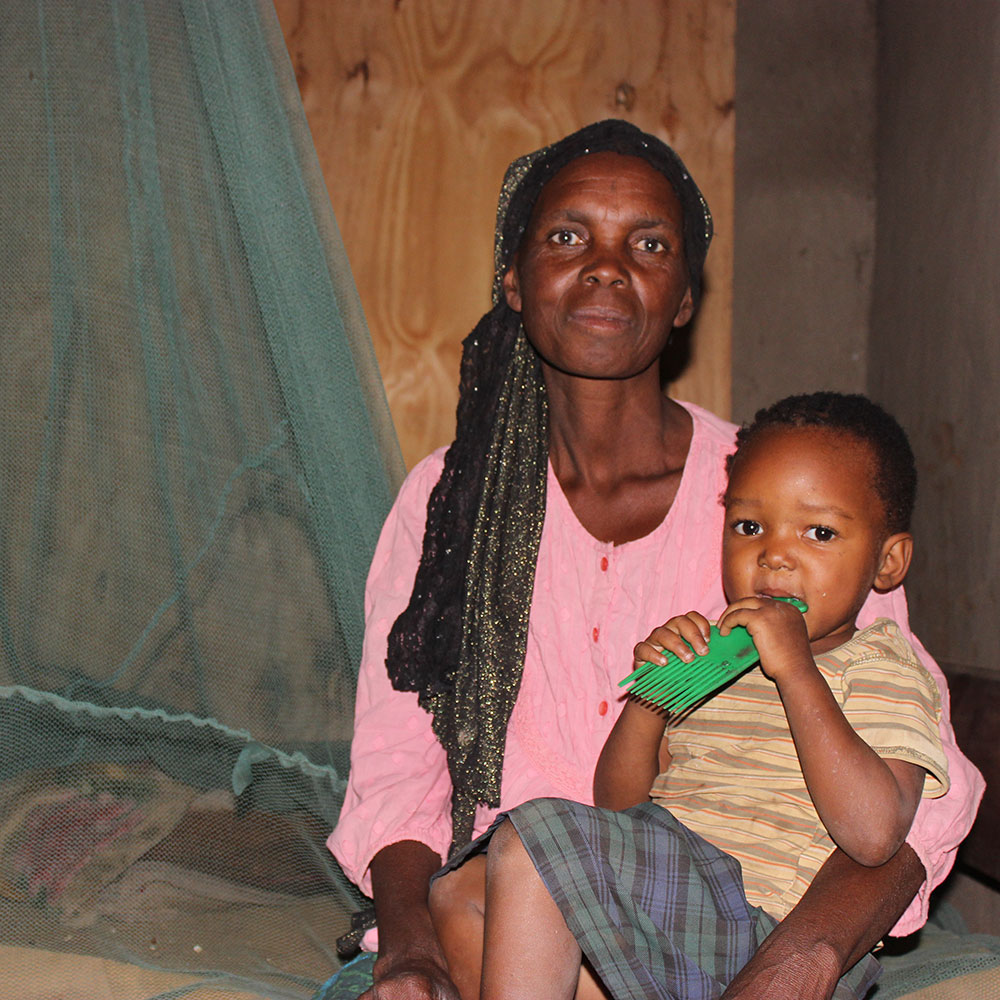Mariam Mwaba lives along the shores of Lake Malawi in Salima District. She lost her father to Chimbanga, which is what local people call the disease characterized by high fever, headaches, body pains, and vomiting. After a few days of fever and vomiting, her father was taken to a hospital, where the family was told that he was suffering from malaria. Over the years, Mariam has lost too many other members of her family, including three children and two grandchildren. Mariam describes how her community has been struggling with mosquitoes for generations, using an array of methods to drive them from homes so they can sleep peacefully. The most common repellent entails creating smoke using cow dung or other herbs. She recounts, “We would fill the room with smoke and wait for the mosquitoes to leave, and then we would dash in and quickly close the doors behind us. But it was never fast enough because the mosquitoes never left in the first place. If anything, the smoke affected us more than it did them, and we would end up sneezing and coughing. Mosquitoes do not cough, they do not sneeze.”
Change, however, came in the form of Salima Aids Support Organization (SASO), a district based organization that receives support from the President’s Malaria Initiative (PMI). SASO trained community volunteers on preventing and managing malaria and supported them to carry out house-to-house and community outreach programs. Mariam is one of the trained volunteers.
Now, not only does Mariam and her whole family use long-lasting insecticide-treated mosquito nets, but she, along with her fellow trained volunteers, visit other villages, spreading messages on malaria prevention and case management. Village chiefs champion the cause, inviting Mariam and her team to come spread the word in their villages. Although they did not have large audiences when they first started, now almost entire villages attend the information sessions.
Overall, Mariam’s family and community are better equipped with knowledge and practices on malaria prevention, as well as management of people exhibiting signs of the killer disease. Listening to Mariam, one is struck by her professionalism. Her commitment to fight malaria and help others is evident as she shares the knowledge and experience she obtained as a volunteer. Her eloquence on malaria is impressive as she describes malaria prevention, symptoms, and different treatment regimens for different ages. But, not everyone shared her passion in the beginning. According to Mariam, the volunteers met with numerous challenges when they started to teach fellow villagers on how to stay healthy and malaria-free. “The audience was always so small; we would be lucky to get a dozen people per meeting. People used to sell mosquito nets to fishermen if pregnant women received a free net from the antenatal clinic,” she explains. That is not the case anymore. The audiences are huge, and include entire village assemblies. And the selling of nets to the fishermen has stopped.
“When the opportunity to become a volunteer arose, I did not hesitate to seize it. I said to myself, ‘I have met the killer face-to-face,’ and I saw what it does. Malaria took my father and my children. But that has to stop now.”

